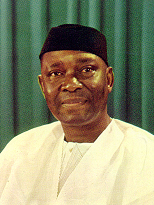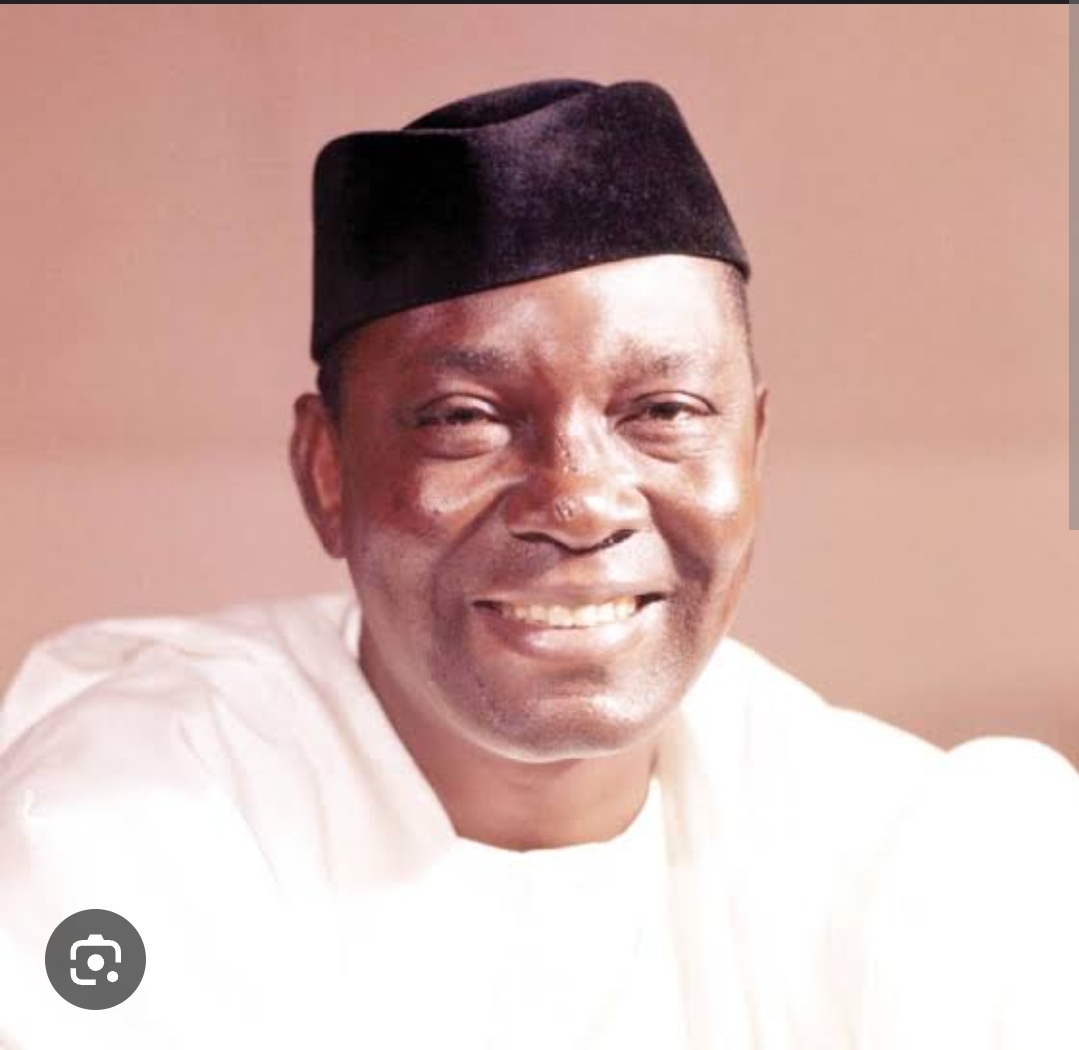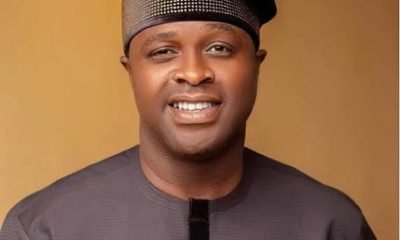Biography
The Biography Of Nnamdi Azikiwe, Highlighting His Early Life, Legacy and Leadership
The Comprehensive Biography of Nnamdi Azikiwe: A Legacy of Leadership and Nationalist
Nnamdi Azikiwe, affectionately called “Zik of Africa,” holds a central place in the history of Nigeria. As a nationalist, political leader, and intellectual powerhouse, Azikiwe played a pivotal role in securing Nigeria’s independence and laying the foundation for modern African governance. This comprehensive biography explores his life in detail, from his humble beginnings and educational pursuits to his groundbreaking political career and enduring legacy. By the end, you’ll have a full appreciation of how this iconic leader shaped not only Nigeria but also Africa’s struggle for freedom.
Early Life: From Humble Beginnings to Grand Aspirations
Zik was Born on November 16, 1904, in Zungeru, present-day Niger State. Nnamdi Benjamin Azikiwe was the first child of Obed-Edom Chukwuemeka Azikiwe and Ijeoma Azikiwe. His father, originally from Onitsha in the Eastern Region, was a civil servant in the British colonial government. Despite the family’s relative stability, Nnamdi’s upbringing reflected the complexities of growing up in a colonized nation. His mother, a devout Christian, played a significant role in shaping his values of discipline and education.
Growing up, Nnamdi exhibited a thirst for knowledge, often excelling in his studies. He attended primary school in Onitsha before enrolling at the CMS Grammar School in Lagos, where his academic brilliance became evident. While other children pursued routine paths, Nnamdi nurtured dreams of becoming an influential figure who could inspire change in his homeland. The colonial environment fueled his ambition to contribute to Africa’s liberation from European domination.
Educational Pursuits: Building the Foundation for Leadership
Nnamdi Azikiwe’s quest for knowledge took him far beyond Nigeria’s borders. In 1925, he left for the United States to pursue higher education. He enrolled at Howard University, a historically Black institution in Washington, D.C., where he studied political science. His time at Howard exposed him to civil rights movements and leaders such as W.E.B. Du Bois, who profoundly influenced his Pan-Africanist ideologies.
After completing his studies at Howard, Azikiwe moved to the University of Pennsylvania, where he earned a master’s degree in political science and philosophy. His education also extended to Lincoln University, where he further deepened his understanding of political systems, governance, and human rights. These experiences laid the intellectual foundation for his role as a nationalist leader.
During his time in the U.S., Azikiwe faced racial discrimination, but he remained undeterred. Instead, he used these challenges as motivation to fight for African dignity and independence. His exposure to African-American struggles for civil rights inspired him to adopt a similar approach for Nigeria’s liberation. By the time he completed his education in the early 1930s, Azikiwe had become a well-rounded scholar with a vision for a free and united Africa.
Return to Nigeria: A New Era of Nationalist Advocacy
In 1934, Azikiwe returned to Nigeria, carrying the knowledge and experience he had amassed during his years abroad. He quickly immersed himself in journalism, recognizing its potential as a tool for political advocacy. He founded and edited newspapers such as The West African Pilot, which became instrumental in educating Nigerians about their rights and galvanizing support for independence. Through his writings, Azikiwe boldly challenged colonial policies, inspiring Nigerians to demand self-governance.
Azikiwe’s journalism not only positioned him as a voice for the voiceless but also solidified his status as a leading nationalist figure. His eloquence and unwavering commitment to justice made him a formidable opponent of colonial authorities. However, his activism did not come without challenges. He faced censorship, intimidation, and imprisonment, but he remained steadfast in his mission.

Political Career: Leading Nigeria Toward Independence
In 1944, Azikiwe co-founded the National Council of Nigeria and the Cameroons (NCNC), a political party dedicated to achieving Nigerian self-rule. As its leader, Azikiwe worked tirelessly to unify Nigeria’s diverse ethnic groups under a common goal. His vision of a united Nigeria was revolutionary, as it sought to transcend ethnic and regional divides.
One of Azikiwe’s significant achievements was his role in negotiating Nigeria’s independence from Britain. He participated in constitutional conferences and used his diplomatic skills to ensure that Nigerians would have a say in their governance. In 1960, his efforts bore fruit when Nigeria gained independence, with Azikiwe serving as the nation’s first Governor-General. Three years later, when Nigeria became a republic, Azikiwe was elected as its first President.
As President, Azikiwe worked to promote national unity, economic development, and international cooperation. He also championed education and infrastructure development, believing that these were key to Nigeria’s progress. However, his presidency was not without challenges. Political rivalries, ethnic tensions, and military coups created instability during his tenure. Despite these obstacles, Azikiwe’s commitment to democracy and unity never wavered.
Relationship with Pan-Africanism: A Broader Vision for Africa
Azikiwe’s influence extended beyond Nigeria. As a Pan-Africanist, he played a crucial role in advocating for the liberation of other African nations. He worked alongside leaders like Kwame Nkrumah of Ghana and Jomo Kenyatta of Kenya to promote African unity. Azikiwe’s belief in a free and united Africa was a driving force behind many of his policies and initiatives.
Through his writings, speeches, and political actions, Azikiwe consistently emphasized the importance of African solidarity. He envisioned a continent where nations could collaborate to overcome colonial legacies and build a prosperous future. His contributions to Pan-Africanism earned him respect across the continent, cementing his legacy as one of Africa’s foremost leaders.
Personal Life: Marriage, Family, and Challenges
Nnamdi Azikiwe’s personal life was as eventful as his political career. In 1936, he married Flora Ogoegbunam, a union that produced several children. Flora was a supportive partner, standing by Azikiwe during his political struggles and contributing to his success. Their marriage was widely celebrated, and Flora became an influential figure in her own right.
Despite his achievements, Azikiwe faced personal challenges. Balancing his public responsibilities with family life was often difficult, and the demands of his political career sometimes strained his relationships. However, his dedication to his family remained evident, and he ensured that his children received quality education and opportunities to excel.
Struggles and Achievements: A Journey of Resilience
Azikiwe’s path to greatness was fraught with struggles. As a nationalist leader, he faced constant opposition from colonial authorities, rival politicians, and even some members of the public. His advocacy for independence often made him a target of harassment and imprisonment. Additionally, the political instability in Nigeria during his presidency tested his leadership.
Despite these challenges, Azikiwe achieved remarkable milestones. He was instrumental in Nigeria’s transition from a colony to an independent republic, and his efforts laid the groundwork for modern Nigerian democracy. He also contributed significantly to education, establishing institutions that continue to benefit generations of Nigerians.
Legacy and Impact: The Father of Nigerian Nationalism
Nnamdi Azikiwe’s legacy is one of enduring significance. As the father of Nigerian nationalism, he inspired millions of Nigerians to believe in their potential and fight for their rights. His vision of a united and prosperous Nigeria continues to resonate, serving as a reminder of the importance of unity and collaboration.
Azikiwe’s contributions to education, journalism, and politics have left an indelible mark on Nigeria. His efforts to promote African unity and liberation have also earned him a place in the pantheon of great African leaders. Today, institutions, streets, and landmarks bear his name, honoring his memory and achievements.
Awards, Recognition, and Net Worth
Throughout his life, Azikiwe received numerous awards and honors, both locally and internationally. He was conferred honorary degrees from prestigious universities and recognized for his contributions to African liberation. His writings and speeches have been widely studied, further cementing his influence.
Although his exact net worth is difficult to determine, Azikiwe was known to have significant wealth, largely derived from his media ventures, political career, and investments. However, his true wealth lay in the legacy he left behind—a legacy of courage, leadership, and unwavering dedication to his people.
Conclusion: The Enduring Influence of Nnamdi Azikiwe
Nnamdi Azikiwe was not just a leader; he was a visionary who transformed the political landscape of Nigeria and Africa. His life story, marked by resilience, intelligence, and determination, serves as an inspiration to all who strive for justice and equality. From his humble beginnings in Zungeru to his role as Nigeria’s first President, Azikiwe’s journey is a testament to the power of perseverance and the impact of visionary leadership.
As we reflect on his life, it is clear that Nnamdi Azikiwe’s contributions to Nigeria and Africa will never be forgotten. His legacy continues to inspire future generations, reminding us of the importance of unity, education, and the relentless pursuit of freedom.












